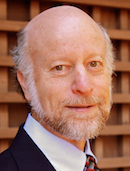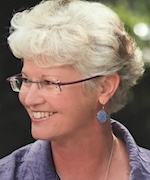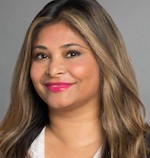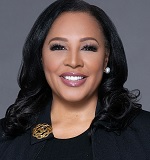Schools & Youth Section
Schools & Youth Articles

Bregant, Robbenolt, and Winship - Perceptions on Settlement
We don’t post a lot of scholarship updates here as there are many better outlets for that, but once and a while something comes out that catches our attention – such as this.

Lessons Learned from the Implementation of a Video Eviction Mediation Program in Uncertain Times
This article is part of a series of perspectives on eviction mediation program development that is being supported by the American Arbitration Association-International Centre for Dispute Resolution Foundation.

Paths Forward for Online Mediation: Final Report of Online Mediation Training Task Force - Introduction
Now that online mediation, and online mediation training, have so substantially impacted (if not taken over) the mediation field, Mediate.com again here offers our Online Mediation Task Force's Final Report and Recommendations.

Mediation As A New Path To Curtail Bullying
Bias-based bullying happens when children ‘otherize’ one another by making someone feel they do not belong because they are considered ‘different’.

Better Reflecting Mediation to the World
While mediators often assist in the creation of near miracles behind closed doors, our miraculous work and effective approaches are still not well-understood by general society. Might a more effective way of "reaching the masses" be to take advantage of "MEDIATION ART," be that in our physical and virtual offices, on our websites, and, perhaps in time, at bus stops and on highway billboards?

Mediate.com Great Reads Book Club - Grande Lum, interviewed by Colin Rule
Another episode from Mediate.com's Great Reads Book Club: Grade Lum talking about his book "America's Peacemakers: The Community Relations Service and Civil Rights," hosted by Colin Rule.

4 Tips to Make the Most of Your Divorce Mediation Process
Divorce mediation has great advantages over the aggressive and unpredictable process of divorce litigation.

Incorporating a Campus Mediation Program
Conflict is a normal, unavoidable part of life.

Book Review of Evolution of a Field: Personal Histories in Conflict Resolution
This book review of Evolution of a Field: Personal Histories in Conflict Resolution, co-edited by Howard Gadlin and Nancy A. Welsh, presents an overview, with snippets of personal and autobiographical material, of this penetrating collection that comprises the “personal stories” of 23 leading practitioners and scholars in the field of conflict resolution.

Forum on Final Report of Mediate.com Task Force on Online Mediation
This is a 90 minute video and resources from the Final Report of Mediate.com Task Force on Online Mediation. This video forum features Woody Mosten, Colin Rule, Clare Fowler, Jim Melamed, Tara Ollapally, Bruce Edwards, Donna Silverberg, Susan Guthrie, Angelia Tolbert, Michael Aurit, Tricia Jones, Michael Lang and John Sturrock.

Your Student is Headed Back to In-person Learning – and There May be Things to Fear that Have Nothing to do with COVID-19
A leading mediation expert and international best-selling author cautions that a year of pent-up frustrations; could cause students to blow.

Mediate.com Adopts Online Mediation Practice and Ethical Standards
One of the Primary Recommendations of the Mediate.com Task Force on Online Mediation is to update mediation practice and ethical standards to fully embrace online mediation. In response, Mediate.com has now formally adopted the Task Force's Recommended Practice Standards for Online Mediation effective January 1. 2022.

Paths Forward for Online Mediation - Committee Reports, Recommendations & Resources
Here are Committee Reports, Recommendations and Resources from the Mediate.com Online Mediation Task Force Final Report.

Mediation Advocacy: A must for law students in India
“Advocacy is a conscious act of support, expressed by speaking or writing on behalf of another person, an idea, a cause or a policy.”

Effective Online Mediation Training For Public Policy And Large Group Mediators
At the request of Mediate.com, a small group of US-based public policy and large group mediators/mediation trainers met online during the winter/spring of 2021 to consider best practices and ideas to enhance online training and practice. This report summarizes our ideas and recommendations for ourselves, our colleagues and Mediate.com.

Virtual Interpersonal Community Mediation: NAFCM Think Tank Report
In November 2020, Mediate.com approached D.G. Mawn of the National Association for Community Mediation (NAFCM) to facilitate a national think tank regarding possible support Mediate.com may wish to consider which would strengthen and broaden the impact of community mediation through on-line access. The exact charge was: Develop best-practice recommendations for Mediate.com regarding their online services so they best support the field of community mediation to embrace and offer online mediation services and utilize and benefit from basic and ongoing online mediation training.

The Long Term Psychological Effects of Divorce on Children
Growing up is complicated enough on its own. Having parents' divorce can make it even harder. To avoid the psychological effects of divorce on children, parents should go through the process gracefully.

Co-Parenting Online Course – How to Not Put Your Kids in the Middle of Your Divorce
The ACE’s (Adverse Childhood Experiences) ACE’s study, is one of the largest studies about traumatic events in the lives of children ages 0-17. This study identifies three types of risk factors for trauma in children: abuse, neglect and household dysfunction.

5 Ways Conflict Resolution Practitioners Can Prevent and Resolve Special Education Conflict During the Pandemic
The current pandemic has created a crucial need for those experienced in conflict resolution practices to prevent and resolve conflict in the education of students with disabilities. Public agencies, schools, and families should utilize those trained in conflict resolution, including mediators, negotiators, and advocates, to combat this crisis and lessen adverse outcomes for those involved.

Global Voices Highlight: A Path to Mediation in the Middle East
Most of the old generations in the Middle East witnessed arranged marriages, which escalated into disputes and conflicts afterwards due to the lack of love. This is why I spent most of my childhood mediating between family members, friends, and neighbors so they can solve their issues, and reach collaborative solutions, without knowing that this can be a profession one day.

Mediation and the Four Agreements
The Four Agreements is based on ancient Toltec wisdom which is said to embody the essential unity of truth and described as a way of life. I believe that if we adopt these Four Agreements they will create enough personal power to change the way we mediate and resolve conflict, leading to better and more satisfying settlements.

Full Video Now Posted of Forum on Online Mediation for Youth and Schools
How can we best support the development of online mediation and online mediation training for youth and in our schools? This Youth and Schools 2-hour Forum builds upon the 2-day "Young Minds, Global Voices Online Conference."

You Might Have more in Common with Bill and Melinda Than You Think…
Bill and Melinda Gates recently announced that they are divorcing after 27 years. Besides having to address their billions of dollars and their enormously influential foundation, this has brought attention to issues of a mature (or “gray”) divorce.

New Mediators' Guidance from Youth Conference
This article summarizes the Young Minds, Global Voices Conference. This conference was sponsored by Mediate.com in an effort to hear from newer mediators. These 6 sessions comprised up and coming thought leaders from around the globe, forming a brain trust for how to create peace in ourselves, our community and our world.

Diversity and Inclusion: Where Process Equals Purpose
For many, campuses of higher education institutions are where students will develop their identities.